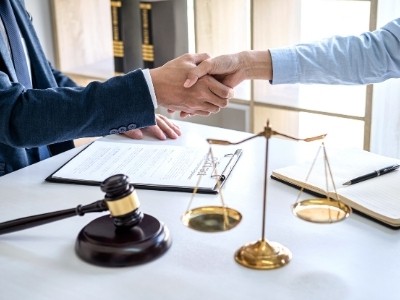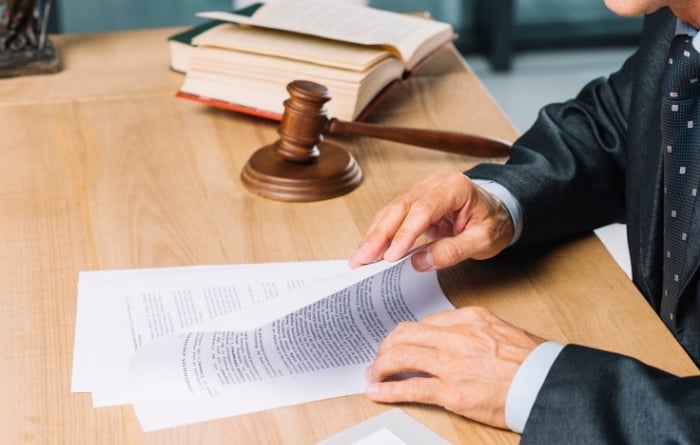Information on the Singapore Company Law
 In Singapore, companies should follow a constitution upon incorporation. A company constitution should be amended later by following the correct procedure if necessary. However, Singapore companies do not prescribe rules that should be in the constitution. The provisions in the company constitution that violate regulations in the Companies Act cannot be enforced. You should know everything about Singapore Company Law to know how not to violate it.
In Singapore, companies should follow a constitution upon incorporation. A company constitution should be amended later by following the correct procedure if necessary. However, Singapore companies do not prescribe rules that should be in the constitution. The provisions in the company constitution that violate regulations in the Companies Act cannot be enforced. You should know everything about Singapore Company Law to know how not to violate it.
The constitution puts limits on the organization’s powers of directors. They must see those confinements as part of their company obligations.
Singapore Company Registration
Under the Singapore Company Law, you must lodge the necessary documents and pay the fee according to the Accounting and Corporate Authority of Singapore (ACRA). Among them are the Memorandum and Articles of Association. Those are the constitutional documents and company regulations that contain their government provisions. The M&AA should give the company name, share capital amount, and state whether the company members’ liability is unlimited or limited. If there is a conflict between the Memorandum and the Articles, the former will prevail.
Types of Business Ownership
Effects of Registering a Company in Singapore
The main effect of company incorporation is that the company is a corporate body that can sue, or others can sue them under their name. After all, the company has perpetual succession with indefinite survival. It stops existing if it gets wound up, can have land, and the members have limited liability if the company is wound up.
During incorporation, a company has a standout personality that the law recognizes. The existence of the company and its identity are different from those of its members. The important consequence is that the company’s debts and obligations are its own. Hence, the members do not have the company’s liabilities. The company creditors can only ask for company debt payments. The creditors would have to bear the loss if the company does not have debts.
Power and Company Rights
The company’s power and rights are written under the Companies Act provision, the memorandum and articles, which no one may contest. The legal personality of the company will confer on specific rights. This includes owning property, suing or being sued, keeping its identity despite membership change, and entering contracts. It also gives rights to separate from participants. The daily company management depends on the board of directors. They ensure the company follows these laws while protecting the interests of shareholders.
Corporate Veil Could be Lifted
Even if a company has its personality, sometimes the courts consider the company and its members as one. For instance, sometimes, the courts could hold the company members liable for the company’s debts. The court can lift the incorporation veil by common law or statute interpretation.
The Rights and Responsibilities of Shareholders
The company shareholders have specific rights as per the Companies Act. Since shareholders are not members, they may not exercise membership rights nor be subject to member liabilities. A person could become a member during incorporation or subscribe to be one. Members can make sure that the memorandum and company articles are followed. They should be able to access company finances and records, attend and vote during meetings, circulate general meeting calls, be given fair treatment, and take derivative actions for wrongdoings against the company.
Further, the company assets are its own since it has its legal identity. The shareholders can sue the company if there is a breach or if they engage in unlawful activities.
Statutory Duties
The directors are company trustees, and they owe fiduciary duties to their company. Additionally, the Act endorses specific obligations on directors that reflect their general requirements under the law. One important arrangement in section 157(1) supports an executive continuously acting sincerely and using sensible determination in releasing office obligations. Section 157 (2) of the Act provides that an operator or officer must not use unnecessary data because of their position rights as an organization specialist or officer. This aspect also covers picking up, by implication or deliberation, what he prefers or other individuals that cause an inconvenience to the organization.
Section 157 does not seem to be a thorough law proclamation identifying the burdens executives owe their company. The impact of this section is to render that statutory commitments are obligatory and the responsibilities of custom-based law can handle prohibition by having an understanding between organizations.
Director Powers and Duties
The directors are part of the company’s daily activities. Therefore, the director or directors must be natural, at least 18 years old, have a healthy mind, and be Singapore residents. Their main duty is to be honest in their actions all the time and diligent in carrying out their duties.
Other general duties involve acting within their powers according to the company constitution. They must act for the company’s good, use independent judgment, exercise skill, avoid conflicts, show care and diligence, say ‘no’ to third-party benefits, and act in its interests.
Ownership and Management Detachment
The Act expresses that the chiefs could oversee the organization’s matters. Further, the executives could practice all organization forces except any power of the act or what the company constitution requires during gatherings. This matter shows the organization’s law highlights that it must be specific to encourage a part of the possession and its administration. Those who own the organization should not associate it with the directors or organization.
While in a couple of organizations, the individuals from the company may connect with the administration. This could be as a manager/director or another official limit in other organizations where the individuals are not part of the administration. Sheets of executives oversee the organizations; many directors are not individuals from organizations.
You must know that these are the most important aspects of the Singapore Company Law before incorporating a company. You can find incorporation specialists in Singapore; you have to contact 3E Accounting because they are those people, and they will assist you.









